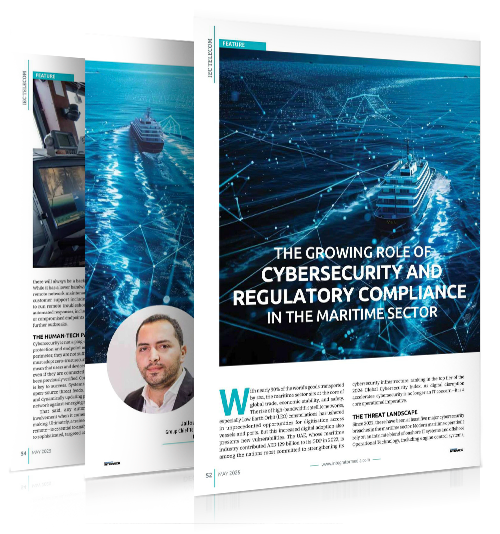Increased digital adoption in the maritime sector is presenting new vulnerabilities – cybersecurity is no longer an IT concern; it is a core operational imperative. Since 2022, there have been at least five major cybersecurity breaches in the maritime sector. In the Middle East, the average cost of one cyber breach has soared to $8.75 million, nearly double the global average. The most pressing threats include malware and ransomware, DDoS attacks, and unauthorised access. In response to this rising threat environment, the International Maritime Organization (IMO) Resolution 428(98) mandates that shipowners and operators must incorporate cyber risk management into their existing International Safety Management (ISM) Code. Cybersecurity begins with effective network management. By segregating crew and corporate networks, vessel operators can significantly reduce the risk of cross-contamination and protect mission-critical systems. Advanced network management solutions, such as IEC Telecom’s OptiView, enable the creation of multiple operational environments on board and offer real-time visibility into key performance metrics. Additionally, continuous anti-exploit monitoring is key to success. Any automation still requires human involvement when it comes to management and decision-making. A trained cyber team is essential to analyse, adapt, and lead the response to sophisticated, targeted attacks. The industry must embrace a future-ready mindset, one that combines regulatory foresight, technological innovation, and a culture of cyber vigilance. Read more about cyber resilience being a foundational enabler of maritime trade in this recent publication with contributions by Jalloul Ben Soussia, Group CTO at IEC Telecom, for Integrator Media.
